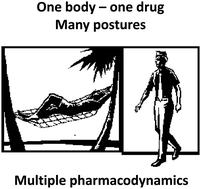Habitual coffee and tea drinkers experienced increases in blood pressure after consuming low to moderate doses of caffeine; these increases were larger upright than in the supine posture†‡§
Abstract

* Corresponding authors
a School of Life Sciences, University of Westminster, 115 New Cavendish Street, London, UK
b Principal Lecturer, School of Life Sciences, University of Westminster, 115 New Cavendish Street, London, UK
c Principal Lecturer, School of Life Sciences, University of Westminster, 115 New Cavendish Street, London, UK
d Professor, Department of Psychology, University of Westminster, 309 Regent Street, London, UK

 Please wait while we load your content...
Something went wrong. Try again?
Please wait while we load your content...
Something went wrong. Try again?
M. K. McMullen, J. M. Whitehouse, G. Shine and A. Towell, Food Funct., 2011, 2, 197 DOI: 10.1039/C0FO00166J
To request permission to reproduce material from this article, please go to the Copyright Clearance Center request page.
If you are an author contributing to an RSC publication, you do not need to request permission provided correct acknowledgement is given.
If you are the author of this article, you do not need to request permission to reproduce figures and diagrams provided correct acknowledgement is given. If you want to reproduce the whole article in a third-party publication (excluding your thesis/dissertation for which permission is not required) please go to the Copyright Clearance Center request page.
Read more about how to correctly acknowledge RSC content.
 Fetching data from CrossRef.
Fetching data from CrossRef.
This may take some time to load.
Loading related content
